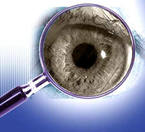
Many residents are increasingly concerned about the threat of terrorism. That's why the Department of Homeland Security (DHS) wants you to be aware of its initiative, "If You See Something, Say Something." While we try to avoid paranoia, we owe it to our families, friends, neighbors and community to be vigilant - and do the right thing when something does seem amiss. According to the DHS, issues that may warrant contacting local law enforcement authorities include:
- Behavior that could indicate a terrorist act or planning a terrorism-related crime.
- Unusual situations might include a vehicle that is parked in an odd location, a package or luggage that is unattended and an open window or door that is usually closed.
- Someone who pays unusual attention to facilities or buildings beyond a casual or professional interest. This includes extended loitering without explanation (particularly in concealed locations); unusual, repeated, and/or prolonged observation of a building; taking notes or measurements; counting paces; sketching floor plans, etc.
Importantly, most of these activities could be perfectly innocent, so you should let law enforcement professionals determine whether the behavior warrants investigation. As always, call 911 in an emergency, but contact your local law enforcement agency to report suspicious activity. When you call, describe specifically what you observed, who or what you saw, when you saw it, where it occurred and why it's suspicious.
DHS emphasizes that Americans must respect citizens' privacy, civil rights and civil liberties by focusing on behavior rather than appearance. Race, ethnicity, and/or religious affiliation are not suspicious. The public should only report suspicious behavior and situations.
- Behavior that could indicate a terrorist act or planning a terrorism-related crime.
- Unusual situations might include a vehicle that is parked in an odd location, a package or luggage that is unattended and an open window or door that is usually closed.
- Someone who pays unusual attention to facilities or buildings beyond a casual or professional interest. This includes extended loitering without explanation (particularly in concealed locations); unusual, repeated, and/or prolonged observation of a building; taking notes or measurements; counting paces; sketching floor plans, etc.
Importantly, most of these activities could be perfectly innocent, so you should let law enforcement professionals determine whether the behavior warrants investigation. As always, call 911 in an emergency, but contact your local law enforcement agency to report suspicious activity. When you call, describe specifically what you observed, who or what you saw, when you saw it, where it occurred and why it's suspicious.
DHS emphasizes that Americans must respect citizens' privacy, civil rights and civil liberties by focusing on behavior rather than appearance. Race, ethnicity, and/or religious affiliation are not suspicious. The public should only report suspicious behavior and situations.

 RSS Feed
RSS Feed